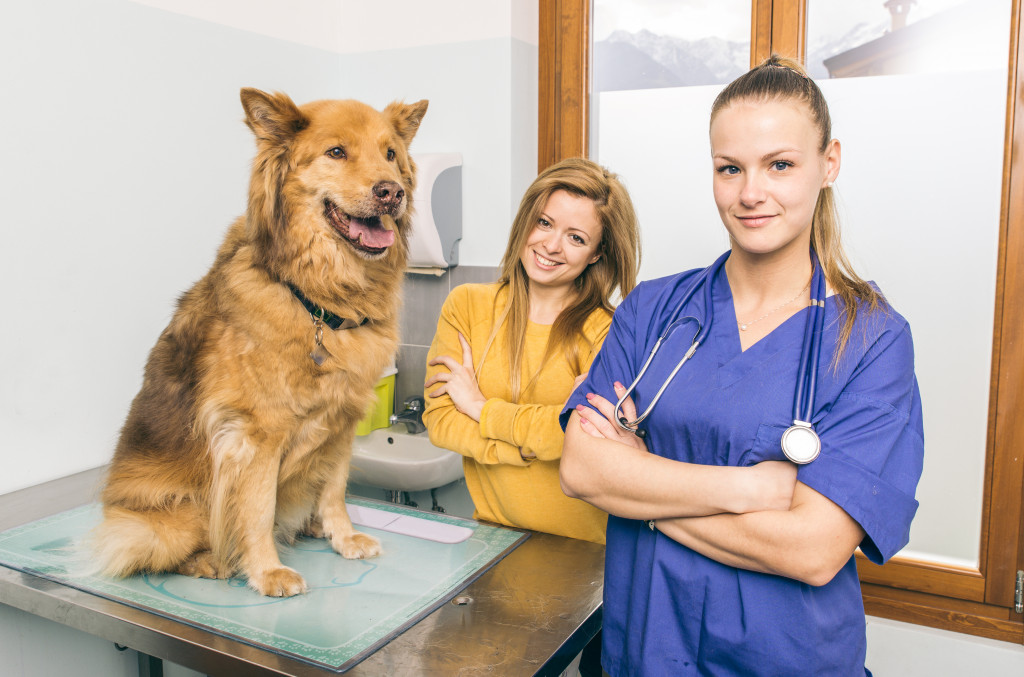When most people think of a veterinarian, they imagine a person who spends their days playing with animals and taking care of them. And while that is true for some veterinarians, it’s not the reality for all of them. There are many challenges associated with being a veterinarian, such as long hours and low pay.
Veterinarians are one of the most humanitarian professions. Their job is to heal animals and help them find their way back home. However, veterinarians often find themselves in challenging situations, too. They have to deal with sick or injured animals every day, which can be both mentally and physically exhausting. But veterinarians also have the privilege of being able to work closely with some amazing people who share their love for animals!
The Challenges of Being a Veterinarian
As a vet, you are charged with the care of people’s beloved pets. But running an animal hospital is not always easy. Sure, it seems fun and exciting for others. However, facing challenges in this industry can take a negative toll on the health of veterinarians. Below are the most common challenges that veterinarians face regularly:
1. Dealing with emotional trauma
Veterinarians deal with sick and injured animals daily. While this can be one of the most fulfilling parts of a veterinarian’s job, it does come with setbacks. Incidents like euthanasia or accidents are just some things that veterinarians have to deal with in their career path.
These situations are difficult to handle because veterinarians have to stay composed to be able to give the best help to animals. Moreover, they are responsible for keeping their patients safe and healthy so that the veterinarian-client-patient relationship will remain intact.
Veterinarians can develop emotional trauma due to this constant exposure to difficult situations. This issue has become an area of concern among veterinarians with veterinarian burnout, which can lead to depression and anxiety.
2. Handling in surgeries
Veterinarians also handle surgical procedures for animal patients. Surgery is complicated, which is why veterinarians need to be extra careful. Veterinarians are responsible for making sure that surgery is done properly so that animals can recover properly.

3. Maintaining client-patient relationships
The veterinarian’s duty does not stop when a surgery procedure ends because they must follow up with their patients. Veterinarians also face the pressure of maintaining their veterinarian-patient-client relationships. Veterinarians are responsible for ensuring that their patients recover properly and maintain good communication with their owners to ensure that they get the best care possible.
4. Maintaining patient records
A veterinarian’s daily work includes filing veterinarian reports, writing veterinarian prescriptions, checking in on animals after surgeries, recording the medical history of different animals, and keeping veterinarian records for each patient.
Some veterinarians face challenges when it comes to filing veterinarian reports on time because they have so many things to do. Therefore, it is best if veterinarians have assistants who can help them with veterinarian records and other duties.
5. Veterinarian burnout
Besides emotional trauma from working with animals in life-threatening situations, vets also suffer from veterinarian burnout which can cause depression and anxiety. Veterinarians experience veterinarian burnout when they start losing their passion for the job, and it becomes more of a chore than something enjoyed.
Veterinarians can avoid veterinarian burnout by taking time off, spending time with family, working on projects outside work hours (like building furniture or gardening), and finding other interests such as knitting or playing an instrument.
Sometimes, veterinarians cannot take breaks at work because of the overwhelming number of patients they have to attend to every day. As a result, veterinarian burnout is inevitable. Veterinarians who notice veterinarian burnout in themselves or their colleagues should talk to a professional about it and find ways to overcome veterinarian burnout and go back to being passionate about the job again.
6. Low pay
Veterinarians may also face financial challenges as the profession is not considered a high-paying job, especially for those just starting out in their career path. Furthermore, they will need to invest more money into continuing education such as medical school or veterinarian tuition. Even if veterinarians receive a pay increase in their lives, they will likely only see it after many years of working.
A Worthy Job
Being a veterinarian can be very challenging. However, it is also a fulfilling profession. After all, veterinarians save lives and help animals spend more time with their owners. Veterinarians can help prevent animals from dying or suffering from serious health complications.
Even though veterinarians do not receive much monetary compensation, they are still doing their best to ensure that all their patients are treated properly. As a result, veterinarians are highly respected for the job that they do.
